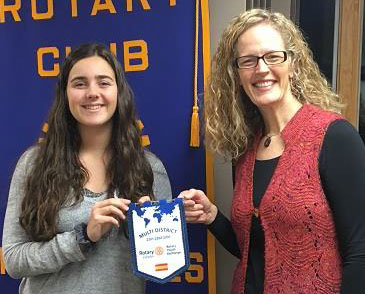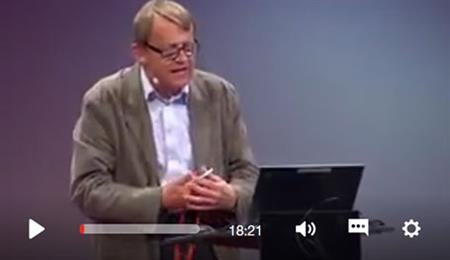Rick Wilson teed up “an experiment,” sharing a Ted Talk that he came across a few years ago and found inspiring. Rick noted that representatives of the Rochester Rotary clubs use Ted Talks to spark conversation between members, and he hopes this might do the same for our club.
Rick Wilson teed up “an experiment,” sharing a Ted Talk that he came across a few years ago and found inspiring. Rick
noted that representatives of the Rochester Rotary clubs use Ted Talks to spark conversation between members, and he
hopes this might do the same for our club.
Think about this:
noted that representatives of the Rochester Rotary clubs use Ted Talks to spark conversation between members, and he
hopes this might do the same for our club.
Think about this:
- The number of deaths from natural disasters in the world has fallen to less than half of what it was in 1900, and yet the majority of people estimate that it has stayed the same or grown.
- Globally, women aged 30 have spent an average of seven years in school (compared to eight years for men); most people assume the number is much lower.
- In the last 20 years the percent of people living in poverty has almost halved; again, many people underestimate the progress we have made.
This is a reflection of the fact that we tend to ignore the majority and focus on the outliers. Another example is world income distribution; since 1975, the percentage of people living on $1/day has decreased, while the percentage living on $10/day has increased. While Swedes seem to be exceptionally good at underestimating these numbers, Americans are also exceedingly pessimistic, as are members of both the US and European media.
Why are we so ignorant? First, we all have a personal bias based on our own experience. Second, teachers tend to teach an outdated world view, as they teach what they were taught from materials that are not current, so we have outdated facts. Third, the news bias favors outliers, things that we are afraid of but that rarely occur. To counter the “global ignorance” that results, the Roslings have embarked on a campaign of global knowledge. Tricks to turn our intuition back into a strength include:
1. Turn the “everything is getting worse” misconception into a “most things will improve” rule of thumb.
2. Choose the “rich or poor” misconception into a “most people are in the middle” rule of thumb.
3. Turn the “countries need to be rich before they can address social issues” to a “addressing social issues helps companies generate wealth” rule of thumb.”
4. Turn the “sharks are dangerous” misconception into a “sharks kill very few” rule of thumb.
With these four “rules of thumb,” you should be able to turn your world around and “beat the chimps,” which otherwise tend to perform better than humans when asked multiple choice questions about global trends. If you have a fact-based world view, you may be able to do better when thinking about the future.

FLAG PRESENTATION: Ana presented the flag of the three
districts in her home country of Spain!
districts in her home country of Spain!
